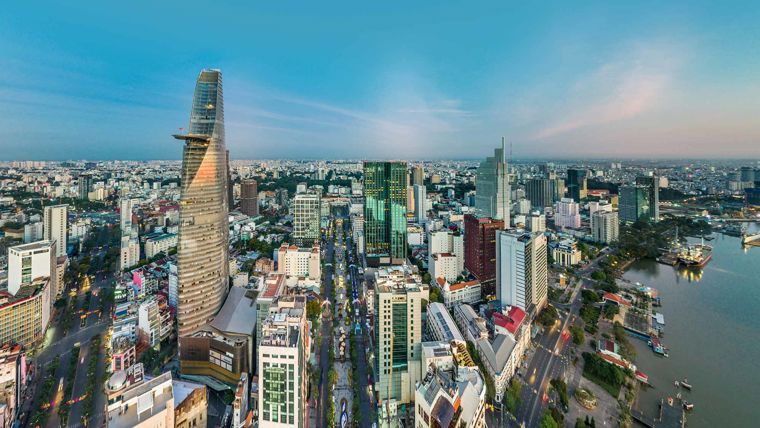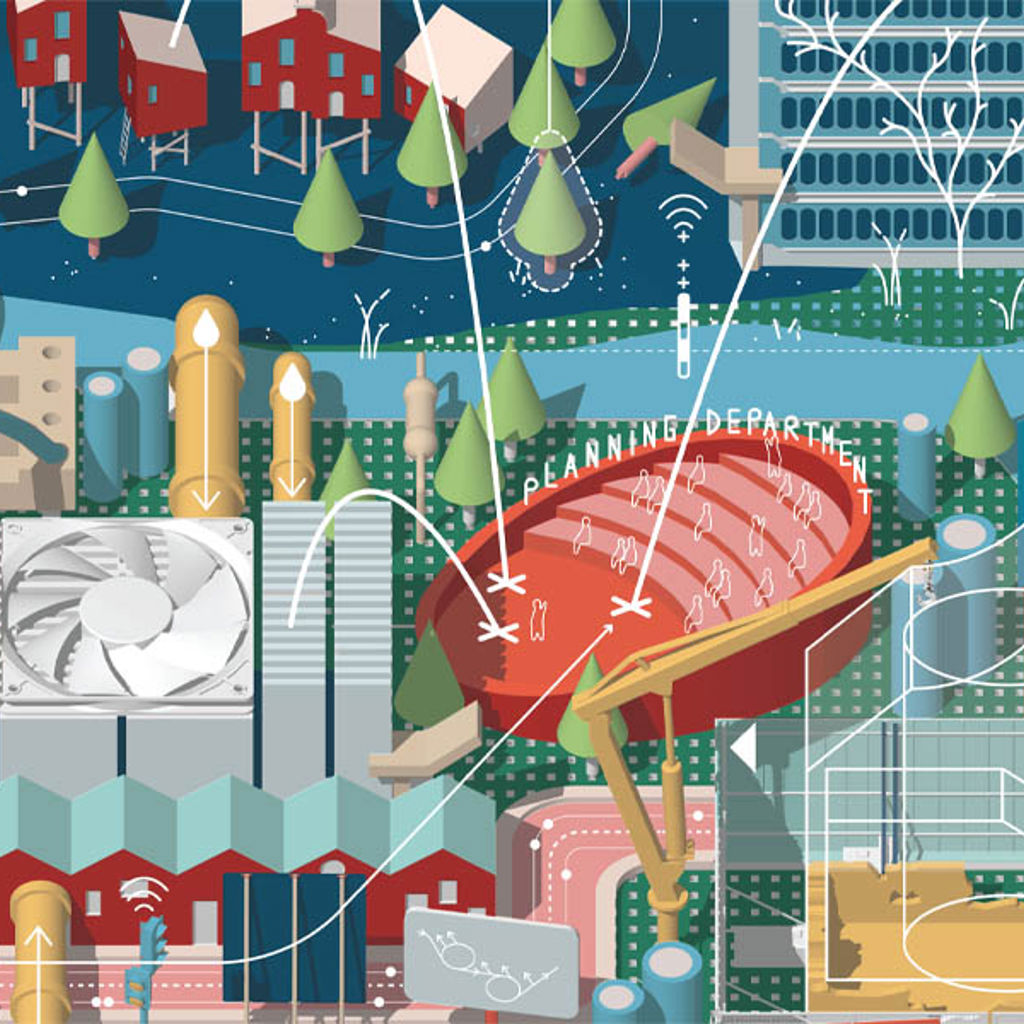Driving the new economy: how smart cities are preparing Vietnam for the future
Our experts explore how digital innovation can be implemented, to become an economic driver that can enhance cities’ liveability, workability, and sustainability.


Australasia Strategy and Insights Leader
Brice Richard
Associate Principle
In fast growing economies, the nature of growth can present policy makers with complex challenges. In Vietnam, urbanisation has grown from 25% to 33% in under twenty years. Factors like these are putting growing pressure on city services, transport systems and mobility, causing quality of life issues and increasing the need for wider economic opportunity. In Vietnam, ‘smart city’ projects are informing and shaping the country’s response to many different priorities. From resource management to urban mobility, government services and environmental issues, digital innovation is seen as playing a central and valuable role in shaping successful national development.
Arup’s own work developing a Smart City Handbook for Vietnam, for the UK Government’s Foreign and Commonwealth Development Office in 2021, offers something of an aerial view of how smart city projects, in all their various forms, can be coordinated to national effect.
This article reflects ideas and experiences discussed in a December 2021 conversation between Sam Wood, UK Deputy Consul to Vietnam and part of the FCDO, Arup’s Brice Richard, Australasia Strategy Leader, and Devni Acharya, Climate Change Consultant. We spoke to Sam to discuss how digital innovation can be implemented, to become an economic driver that can enhance cities’ liveability, workability, and sustainability.
Build the infrastructure
We already know that digital innovation boosts competitiveness, efficiency, and opens up new markets. At the national level this amounts to a certain kind of signalling too and it starts to reshape and grow the level of foreign direct investment (FDI) a country receives.
Vietnam is clearly attempting to develop a broader footprint in the digital, knowledge economy. As Sam Wood, UK Deputy Consul-General in Vietnam observes, “Vietnam has benefited over the last few decades from being an attractive hub for low cost competitive manufacturing, but that won't sustain economic growth in the next few decades. It will be more about innovation, about access to high tech, about access to clean growth, and access to renewable energy.”
What are investors looking for? It starts with strong digital infrastructure and connectivity – fast, affordable and reliable wi-fi and 5G – that reaches all communities within a country. It means embracing the idea of open data and shared platforms, providing innovators with access to information that can drive new services in the urban environment, from entertainment to travel to healthcare. (On the latter element, the experience of the pandemic has clearly a major spur to health-tech innovation).


Vietnam has benefitted from low cost, competitive manufacturing, but that won't sustain economic growth… It will be more about innovation.
Sam Wood
UK Deputy Consul-General and Head of Trade & Investment, Ho Chi Minh City
Which sectors are adopting smart city thinking?
Listen to Sam Wood and Arup's Brice Richard describe how smart city thinking is becoming all pervasive across the Vietnamese economy
Coordinate for greater impact
Ultimately, consistency and national coordination, of what are often locally led initiatives, are key to achieving real change though. The digital economy is inherently both continuously evolving and unpredictable, challenging decision makers to make bets about the future. As Sam Wood sees it, “tech is often an area where the private sector and innovation, frankly, outstrip the policy agenda from government. So I think one of the challenges for the ministries here will be keeping up with the pace of private sector change and the level of innovation that's already underway.”
With new technology, change is user or behaviourally driven, something decision makers need to stay aware of as they shape future development. As Sam sees it, “it’s something we need to capitalise on, by making sure that urban planning properly integrates digital solutions and reflects people’s preferences and needs. We’re seeing it on smart city projects here in Ho Chi Minh City, including an ‘ask’ to international partners for digital solutions within the city planning process.” In 2017, Ho Chi Minh City’s people’s committee committed to a smart city plan that will lead to investments in cloud and digital infrastructure, data centre development, and an open data initiative. With these in place it’s hoped the city can tackle issues like improving e-government, environmental priorities, flood control and urban ‘liveability’ in a more joined up way by 2030.
Digital innovation and climate change
Listen to Sam Wood and Arup's Brice Richard's insight on how coordination can bridge local, national, private and public sector efforts at digital innovation.
‘Smart’ must mean inclusive
In the last few years, digital services have proliferated even in once highly analogue sectors, from property to banking to education and now healthcare. This breadth of innovation, coupled by the relative affordability of technologies like smart phones, has both reinvigorated the smart city agenda and its sense of purpose, yet also presented new challenges.
Sam Wood identifies inclusivity as a key concern though. “In Vietnam we want to make sure that it isn’t just cities and their urban populations that are gaining access to new digital services and the benefits that flow from them. It’s vital that rural areas and communities are not disadvantaged. For example, throughout the pandemic it was clear that certain communities had better access to services like online education. So as we shape future projects, ensuring inclusivity and access will be key.”
How are smart cities benefitting ordinary people?
Listen to Sam Wood and Arup’s Brice Richard discussing how smart cities benefit ordinary people
Vietnam has been an incredible developmental success story in the last few decades. It has maintained high growth and embraced innovation, with an openness to partnerships between state and private sector, national and international partners. Smart cities thrive on these connections, building working relationships between civil society, private enterprise, academia and government bodies. As Arup’s work on the Smart Cities Handbook for Vietnam has shown, the growing power of digital offers administrators, innovators and investors with an unparalleled opportunity to make big change happen, to the benefit of everyone.
We would like to thank Sam Wood for his participation.
Get in touch with our team
Insights
Explore more advisory insights
Future of Making: reimagining our material culture

AI for Future Cities: Urban Planning and Design

Operational Readiness Activation & Transition (ORAT)

Get more from your core investments: How faster fit-outs can drive higher returns for commercial properties.

